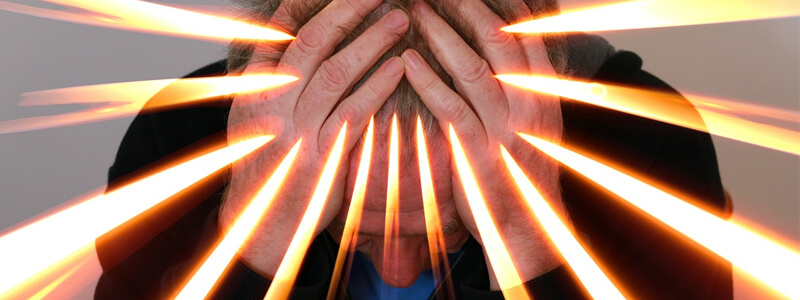Stress is endemic at the moment – the NHS is widely known as being a very difficult environment to work in, and doctors seem to be either leaving, emigrating, or becoming so stressed that it results in illness and long-term sick leave.
So why are we as a profession so bad at looking after ourselves? And is there anything we can do to help prevent this situation?
Medics are generally a group of driven, high achieving individuals that are used to working hard and realizing their goals. Most, since childhood, has had a desire to ‘help others’, not in the clichéd way that this can sometimes be perceived, but through a genuine desire to bring better health to those that most need it.
Demand in healthcare has reached fever pitch and most doctors can anticipate long days, expectant patients, and a heavy work-load. Therefore, now more than ever, it is imperative to look after ourselves and each other if we can hope to keep our heads above water and perhaps even retain some enjoyment for our careers that we’ve fought so hard for!
Recognising the signs of stress and burnout:
Mild stress in itself does not necessarily have to be a problem, and indeed a lot of people function at a higher level with a low level of background stress. However, when this starts to affect us physically and mentally it’s time to take stock and re-evaluate the situation. Burnout is at the other end of the spectrum – when stress has become so chronically overwhelming that a person can barely function either physically or emotionally.
The symptoms and signs of stress include:
- Feelings of anxiety
- Difficulty concentrating at work
- Poor sleep – for example waking worrying about work
- Somatic effects – headaches, symptoms of IBS, dizziness, nausea
- Finding it increasingly hard to ‘switch off’
- Feelings of low self-esteem
- Increased irritability; this may have effects on family and friends
- Changes in appetite
And if prolonged, stress can result in burnout:
- Detachment from your work, friends, and family
- A lack of caring about the quality or safety of your work
- Feelings of hopelessness
- Increased chance of making mistakes at work
- Increased time off work
So perhaps if we can recognize these signs earlier we might be able to alter the outcome, before heading towards burnout.
Positive steps we can take to help ourselves:
Look at your work environment and hours – is there anything you could change to improve your situation? Perhaps a chat with your clinical supervisor would be a good idea?
Talk to a friend – it may sound trite, but ‘a problem shared is a problem halved’. As a profession, we are not good at admitting when we can’t cope. Talking may be an excellent way to start dealing with your situation and your friend may come up with coping strategies that you hadn’t thought of.
Meditate – even for 5 minutes at the start/ end of the day. Taking this time to de-clutter our brains is widely recognized as a healthy way to look after our minds. We often recommend it for our patients, so let’s try it ourselves!
Have something to look forward to – book a holiday, plan a day out with a friend – psychologically it is always an excellent idea to be excited about a future event.
Take regular breaks – at work and from work. Instead of saving all your holiday for a long break, perhaps think of spreading it out and taking frequent shorter ones. And at work itself, take time for a coffee, for lunch, or even a toilet break.
Eat healthily – doctors can be fairly unhealthy, often through the necessity of having to eat quickly, but this can result in ‘sugar lows’ and subsequent need to have a ‘quick fix’ of high sugar substances. Try and plan your meals and think of healthier (but equally quick) foods to have with you.
Exercise – we all know exercise can lift mood, but it can be hard to fit around shifts and long days. Try even wearing a pedometer – most days on the wards you will get over 10,000 steps, and that might even be enough of a psychological boost to know that you’ve exercised whilst working. And on your days off, try a new activity – climbing, dancing, martial arts, paddle-boarding – anything!
Set boundaries – doctors are notoriously bad at saying ‘no’. It is important to realize that if our wellbeing is compromised then we are not going to be able to help our patients either. Try to keep to your regulated hours/ shifts where possible.
Keep a journal – this can be enlightening when we are not sure what the source of our stress is. Keep it for a week and document how you feel in the various environments and triggers for your stress may become apparent.
Switch off – the curse of modern technology is that we are always contactable. Try to be vigilant and have technology-free times.
Seek professional help – if self-help is not working it is really important to seek professional help. This can be via your GP or via an organization that specializes in medical stress, such as the BMA. Don’t ever ignore your symptoms.
Early recognition of and strategies to manage stress can help us to cope with our everyday battles. And hopefully, over time, we can become a little kinder towards ourselves and retain our own mental and physical health.
Medical Exam Prep would like to thank Dr. Clare Barton for contributing this blog post
About Dr. Clare Barton
Dr. Clare Barton qualified from Imperial College School of Medicine in 2001 and has worked as a General Practitioner in the UK since 2007. As a GP she has developed an interest in mental health and holistic medicine, incorporating acupuncture into her medical practice for the last 15 years.





